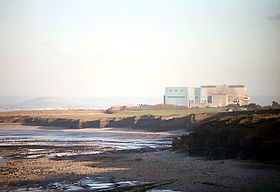 The Public Accounts Committee has delivered a withering assessment of the way ministers have handled Hinkley Point C, the nuclear power station scheduled to be built in Somerset.
The Public Accounts Committee has delivered a withering assessment of the way ministers have handled Hinkley Point C, the nuclear power station scheduled to be built in Somerset.
Its report suggests government reassess the case for new nuclear before agreeing any more expensive deals and publish a report on the impact on bills, particularly on poorer households.
Currently, energy policy costs are added to electricity bills, giving the poorest a heavier burden relative to income. These costs will rise sharply in the coming years.
This week Centrica suggested taking policy costs out of bills and into general taxation, which it said would alleviate pressure on low income households.
It might also make large suppliers more competitive: Small suppliers with fewer than 250,000 customers do not have to pay for some of the policies added to energy bills, such as feed-in-tariffs, energy efficiency (Eco) and fuel poverty schemes (the Warm Home Discount).
Echoing a report by the National Audit Office, the Public Accounts Committee also urged government to make sure it has an alternative plan to ensure security of supply, just in case construction of the new power station runs late.
See the report here.
Related stories:
Develop nuclear plan B in case ‘risky’ Hinkley C fails, say MPs
Solar and storage ‘half the cost of Hinkley C’
EDF extends operating life of UK nukes
UK facing blackouts when coal plants close, engineers warn
‘Forget blackout Britain: Flexibility will solve capacity issue’
UK to lose 2GW of capacity as Eggborough consults on closure
Engie to close 1GW Rugeley power station
Society must rethink its approach to electricity use, says Ofgem networks chief
Follow us at @EnergystMedia. For regular bulletins, sign up for the free newsletter.




The House of Commons Public Accounts Committee has expressed surprise that, despite radical changes in electricity costs, “the government last formally considered the strategic case for nuclear in 2008”.
Given that annual consumption levels of electricity in the UK are now approaching 30% lower than was being forecast a decade ago, the surprise is that nobody seems to have formally asked: was this White Elephant ever really needed at all, at whatever price?